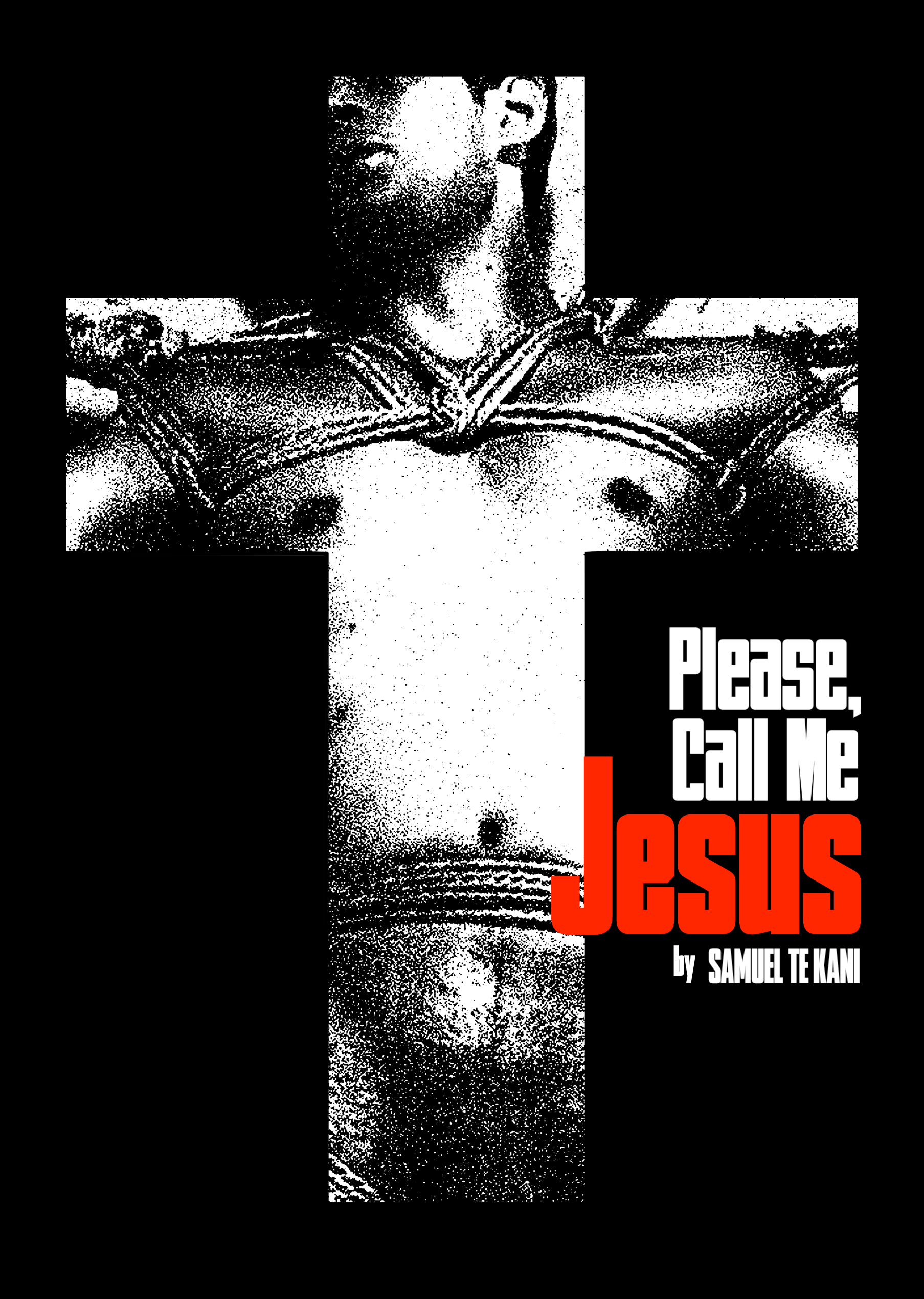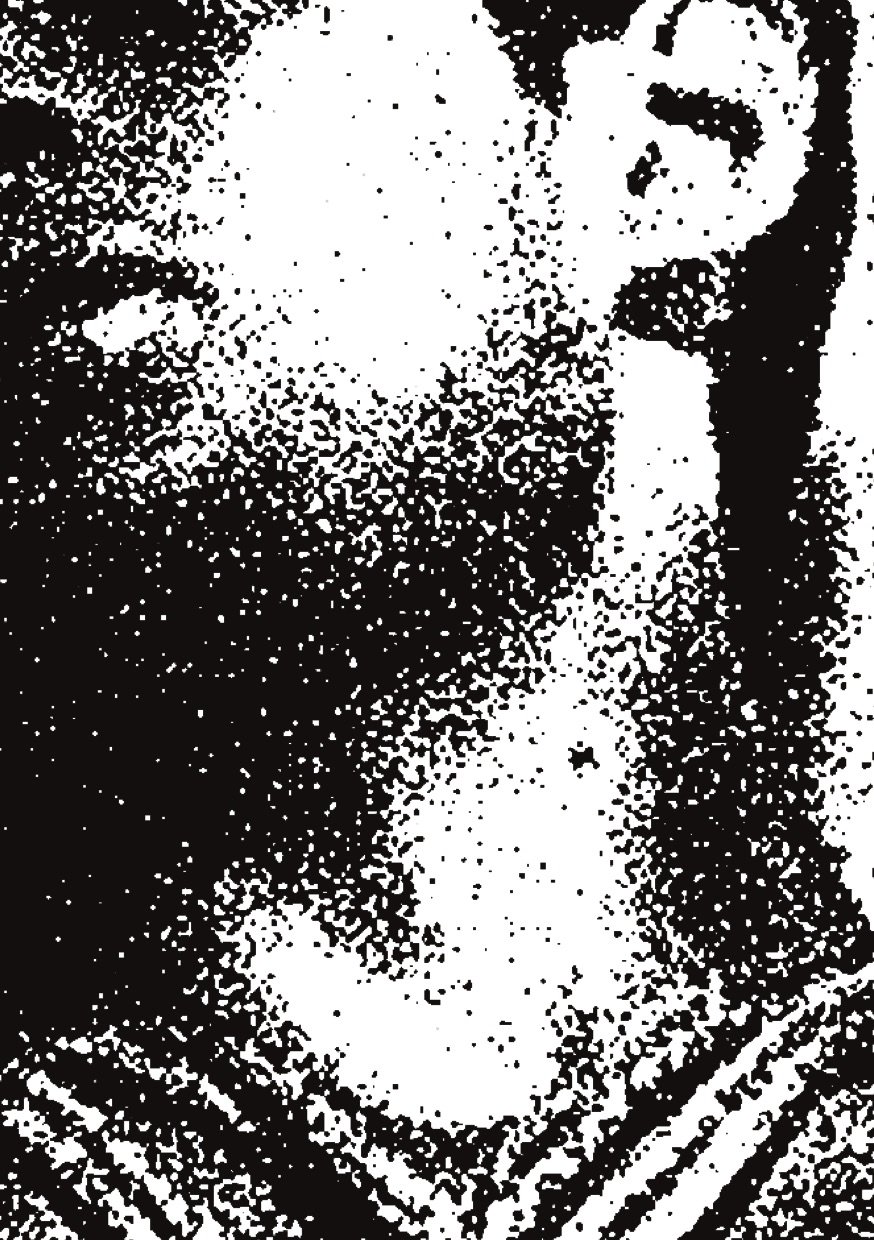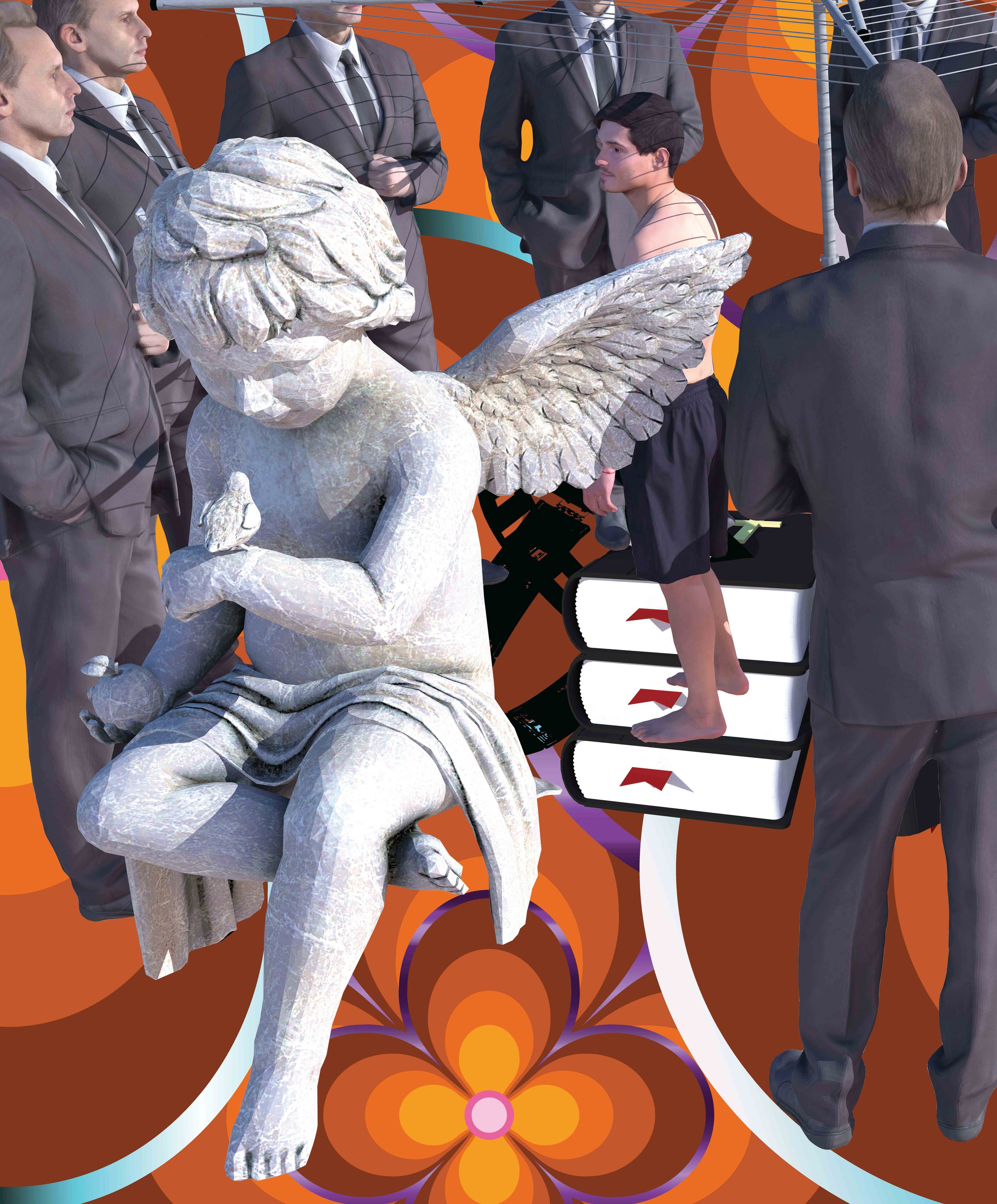“Repositioning pleasure as a value,” in conversation with Samuel Te Kani
Please, Call Me Jesus is a collection of short erotic fiction by Samuel Te Kani. Here, curator Daniel John Corbett Sanders speaks to Te Kani about this new book.
Samuel Te Kani, photographed by Meg Porteous. Styled by Franca Chase
Daniel John Corbett Sanders: It’s appropriate that my first time reading Please, Call Me Jesus was sitting in a laundromat leaning against the window with my back to Karangahape Road. A sex worker adjusted her lipstick in the reflection of a dryer while her friend found something they had stored behind a washing machine. And then behind me, nothing but beige things walked past, supposedly people, sickened that ‘Laundromat’ wasn’t the name of a bespoke organic wine bar. In this public environment, I read “‘Whoah that’s huge,’ Tate grunted. When he sensed Tate was ready for it, Kai fed him another inch, and then another.” Reading the stories in Please, Call me Jesus, especially in public, feels naughty, if not rebellious. What are your thoughts on this?
Samuel Te Kani; It makes me happy to think you initially felt something like shame and then pursued reading it anyway, especially in a public space. Propriety is luggage.
In a city such as Tāmaki Makaurau that’s becoming not much more than a mall of cookie cutter tapa restaurants, a call to embrace sexuality and desire honestly and with joy is liberating. For me, it’s a call to embody politics, the horny parts and the gross parts. Do you see indulging the erotic as a political act?
Yes and no. I guess it’s hard to differentiate yourself from a political positioning, seeing as we’re in a climate that socially forces (bullies) everyone to be so positional. Like, I have to have an opinion and then wear that otherwise I have no currency. But then even saying that is having an opinion on having an opinion hahaha. While I think there’s truth in everything being political, I think we give too much credence to political registers, as if this were the only valid language to describe reality. And in effect it’s one that treats lives and pleasures as a calculus. If I’m trying to do anything it’s repositioning pleasure as a value, and not in a strictly hedonistic way but as a method of deriving meaning from our reality as weighty as anything else. Identity isn’t everything.
For quite a while you were writing personalised erotic fiction for cash. They were immensely popular and several people I know commissioned one. The nature of writing these stories required you to form an intimate relationship with the kinky psyche of your reader. How did you find this experience? How is it to delve into the perverse corners of human desire?
It was this profound thing to dive into what somebody else finds intimately arousing. More than any other experience this taught me how fluid desire really is, or can be, and how a decision to broaden your palate can genuinely initiate a bodily response. Because if I’m not turned on while I’m writing erotica then I know it’s probably gonna be shit. So finding my own horny in somebody else’s variant was—and remains—crucial.
The book is a summer affair. A discreet hookup. Your readers are your lovers. Is there anything in particular you want your readers to take away from reading Please, Call Me Jesus?
We’ve just had three months of circumstantial celibacy (some of us anyway), and I can only hope the summer boils over into a city-wide bachanal. Green means go!
The short story format favours erotic fiction. The time it takes to read a story mirrors the time it might take to watch a video on PornHub. Do you see yourself moving into the novel form?
Lord knows I’m trying at the moment. What I’ve realised is that writing novels is a rich person’s game, which makes sense seeing as the novel writing tradition stems from writers for whom matters of survival and daily toil were non-existent. Obviously there’s been exceptions, but I get that writing a novel-length story requires something like stepping out of life for a hot minute, which you need time and money to do. So future residency’s permitting, yes I would love to write a novel.
Please, Call Me Jesus by Samuel Te Kani, published by Dead Bird Books, $30. Cover art: Joe Locke. Design: Gabi Lardies
Samuel Te Kani, photographed by Meg Porteous. Styled by Franca Chase
Samuel Te Kani, “The God Boy,” in Please, Call Me Jesus, published by Dead Bird Books, $30. Design: Gabi Lardies
Samuel Te Kani, Please, Call Me Jesus (contents page), published by Dead Bird Books, $30. Design: Gabi Lardies
Samuel Te Kani, Please, Call Me Jesus (interior artwork by Joe Locke), published by Dead Bird Books, $30. Art: Joe Locke
Samuel Te Kani, Please, Call Me Jesus (interior artwork by Joe Locke), published by Dead Bird Books, $30. Art: Joe Locke
Samuel Te Kani, “The People in the Metal Trees,” in Please, Call Me Jesus, published by Dead Bird Books, $30. Design: Gabi Lardies
Samuel Te Kani, photographed by Meg Porteous. Styled by Franca Chase














On My Volcano Grows the Grass is a solo exhibition by Deborah Rundle at Parasite in Auckland. Here, Parasite curator Daniel John Corbett Sanders speaks to artist Deborah Rundle about her artworks in the show and wider artistic practice.